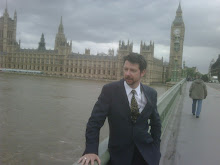'S E AN App is motha tha mi a' cleachdadh air a' fòn-làimhe 's e fear a' BhBC gus èisteachd ris an rèidio (sin nuair nach eil mi a' cleachdadh a' fòn airson craoladh air an rèidio).
Ach bho chionn ghoiridh tha mi air mo bheò-ghlacadh le làrach-lìn a chuir caraid thugam. Dealbh mòr den phlanaid agus bidh thu a' sguabadh thairis air le do chorrag.
Ge bith càite a bheil thu a' stad tha thu a' lorg stèisean rèidio ionadal an àite.
Tha mi air a bhith eadar Alasga agus Astràilia agus a h-uile àite air an t-slighe Tha "RadioGarden" coltach ri a bhith ag èisteachd ri Shortwave nuair a bha thu òg, an saoghal tighinn thugad fo na plaideachan.
Ach mar as àbhaist tha an combaist ga do stiùireadh dhachaigh.
Bho àm gu àm bidh mi a' lorg "Ceòl 's Craic" rèidio air Facebook, ceòl an t-saoghail tro mheadhan na Gàidhlig.
Le preasantair ùr, Alana NicAonghais, an t-eòlas ciùil aig an Dotair Raibeart agus an riochdaire, Laurie Cuffe, tha am prògram sgoinneal, ùr-nòsach agus farsaing an coimeas ri na tha ri fhaighinn air a BhBC.
Bha fiù's agallamh aice le seinneadair Killing Joke an t-seachdainn sa chaidh.
Tha iad airidh air luchd-èisteachd nas fharsainge.
Translation - The App I use most often on mobile phone is the BBC one for listening to the radio (when I'm not using the phone for broadcasting on the radio).
But recently I've been caught with a website a friend sent me. a big image of the planet that you sweep across with your finger. Wherever you stop you find the local radio station of the area. I've been from alaska to australia and everywhere in between .
"radiogarden" is like listening to shortwave when you were young, the world coming to you under the blankets. But as usual, the compass guides you home. From time to time, I find "Ceòl 's Craic" radio on Facebook, world music through the medium of gaelic.
With a new presenter, Alana MacInnes, the musical knowledge of Dr Robert and the producer, Laurie Cuffe, the programme is fantastic, innovative and wide-raingng compared to what is available on the BBC.
They even had an interview with the singer from Killing Joke last week. They deserve a wider audience .



